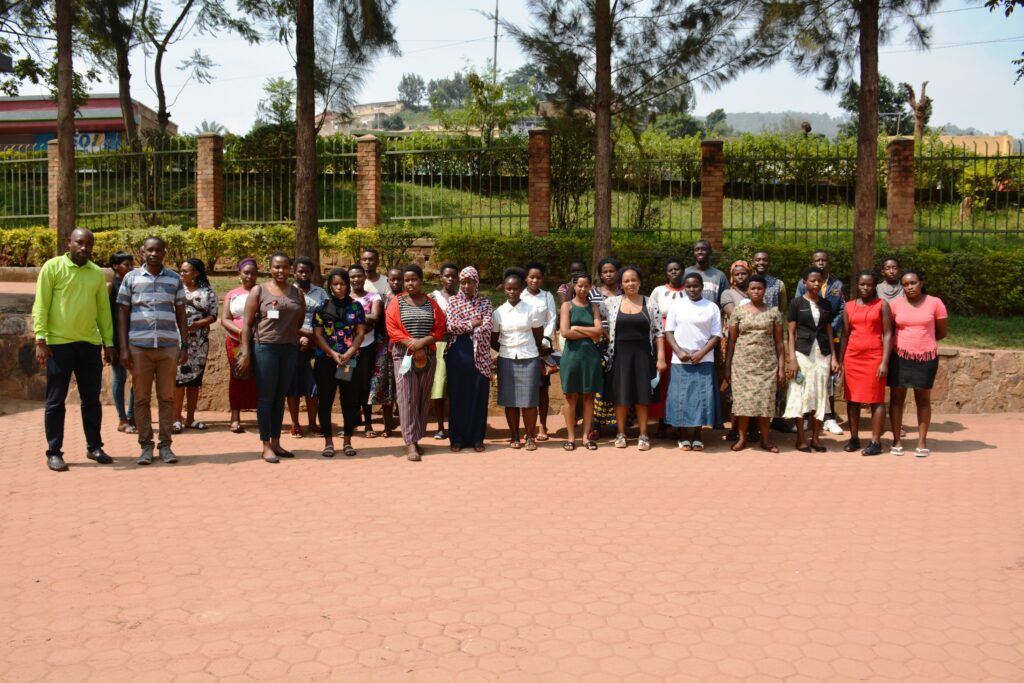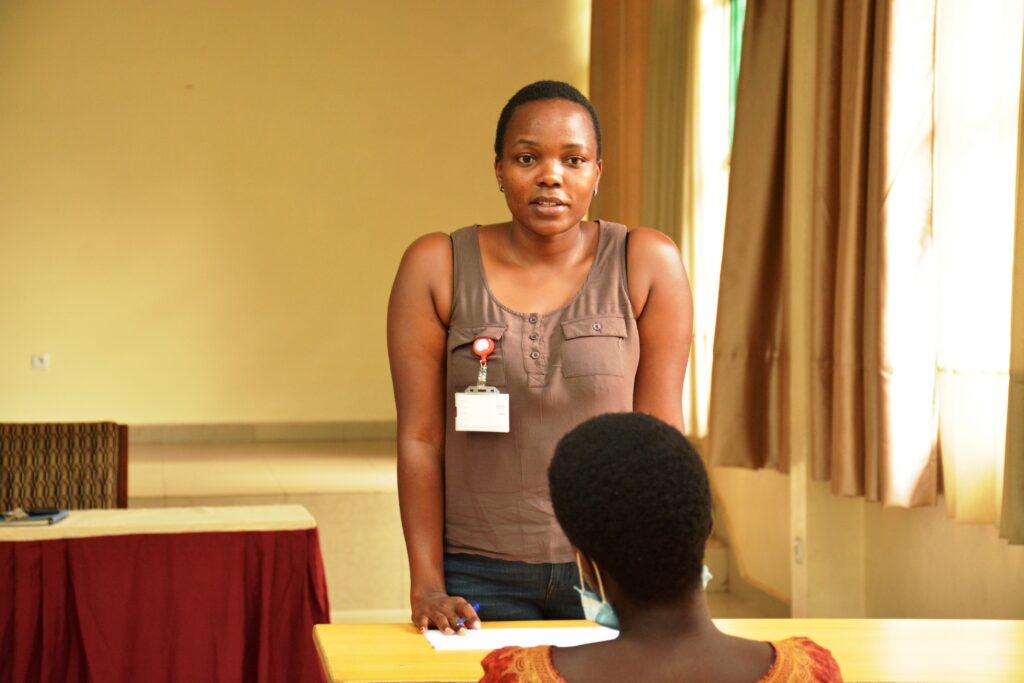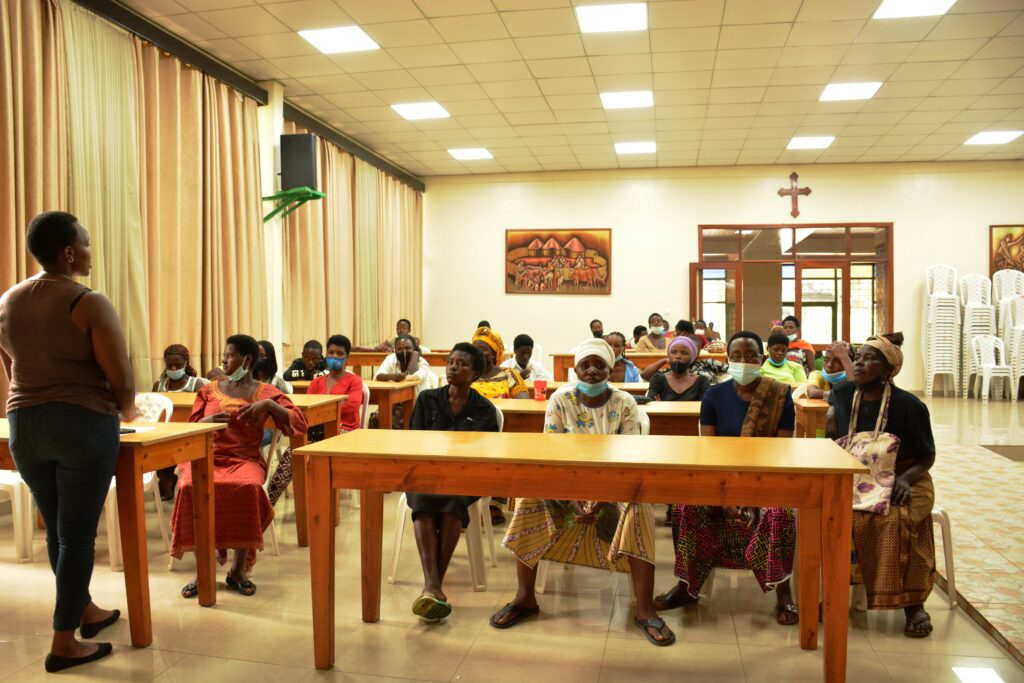
Women Empowerment Project Beneficiaries (Cyahafi)
Jesuit Urumuri Centre has launched the next phase of the women empowerment program where the Centre has taken on a second group of beneficiaries and will facilitate vocational training, internship and start up businesses for 60 women and men from the slums of Cyahafi, Nyagatovu and Nyabisindu in the City of Kigali.
On Thursday 27 January 2022, JUC programs manager, Gloriose Umubyeyi, met with the group from Cyahafi at St. Peter Cyahafi parish and then the Nyagatovu/Nyabisindu group at JUC premises. The two meetings were meant to establish initial contact with beneficiaries and to assure them of the Centre’s commitment to accompany them during this learning and growth process for the greater purpose of improving their families’ and their own livelihoods.

JUC Programs Manager Gloriose Umubyeyi
Speaking at both meetings, Gloriose spoke on behalf of the Centre thanking beneficiaries for their enthusiasm for the project; “We are delighted to see you all here; you all arrived on time which is encouraging for us because we see that have a good group of beneficiaries that will take full advantage of this process. I ask you to maintain this excitement and discipline so that you can attend classes well and we will do our part in not only educating you but setting up your future businesses for the overall integral development of yourselves and your families”.
The women empowerment project was initially implemented in November 2020 as a second phase of the Leave no-one behind project; a project which saw JUC provide emergency food relief to 170 families most affected by COVID-19 pandemic for a period of 3 months.

This social empowerment program for vulnerable women at that time also dubbed “Long walk to recovery-post COVID-19 period” came as an intervention for mostly woman-headed households whose breadwinners were street vendors before the pandemic, and had been forced to stop working due to government imposed lockdowns meant to contain the spread of the virus. Despite the project having been thought of for these vulnerable women, it does always include a few men in cases where a male member of the family wishes to learn skills and become his family’s breadwinner.
When the project was launched in 2020, the Centre facilitated a social innovation and entrepreneurship course, vocational trainings in hairdressing, tailoring and baking, internship and the set-up of businesses for 45 women and 5 men. The project was closed in September 2021 after beneficiaries received the support to start their own businesses.
Since then, that first group of beneficiaries has returned to the Centre to thank all stakeholders for the improvement of their livelihoods. This, together with the support of our collaborators, encouraged the Centre to launch this next phase of the program taking this second group of beneficiaries.
Following the launch of this next phase of the project, the beneficiaries should begin their vocational training in February 2022.
Henriette Mushimiyimana
Communication Officer










